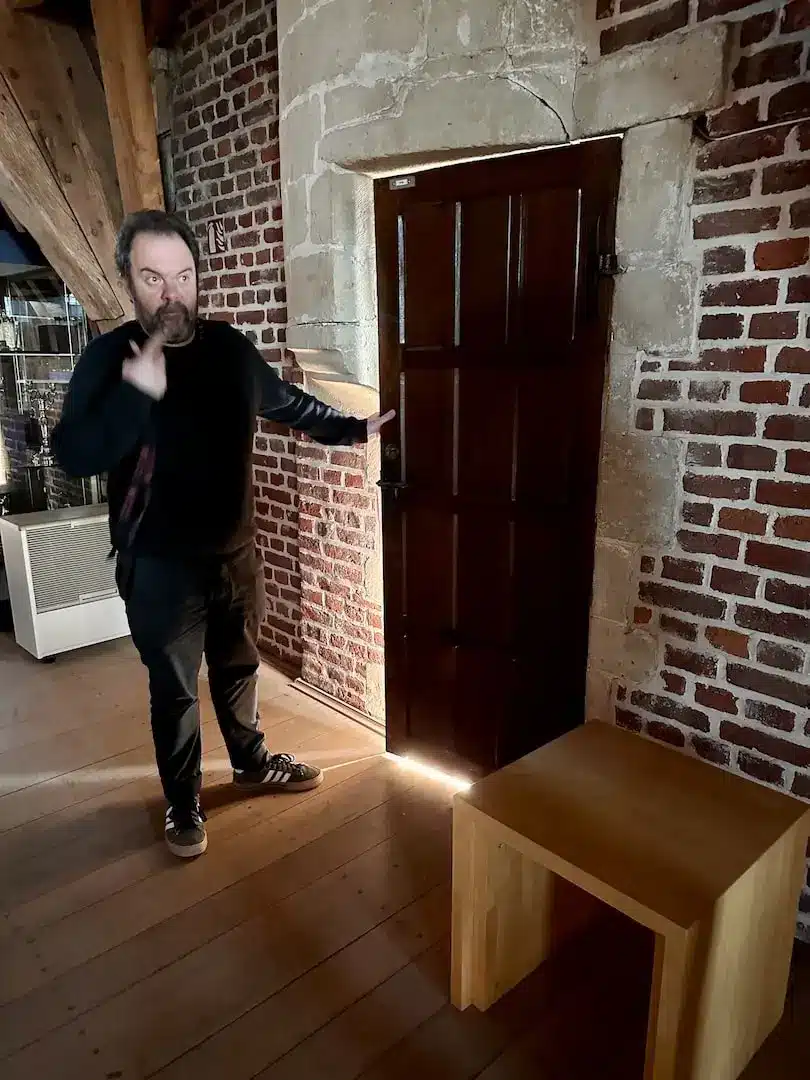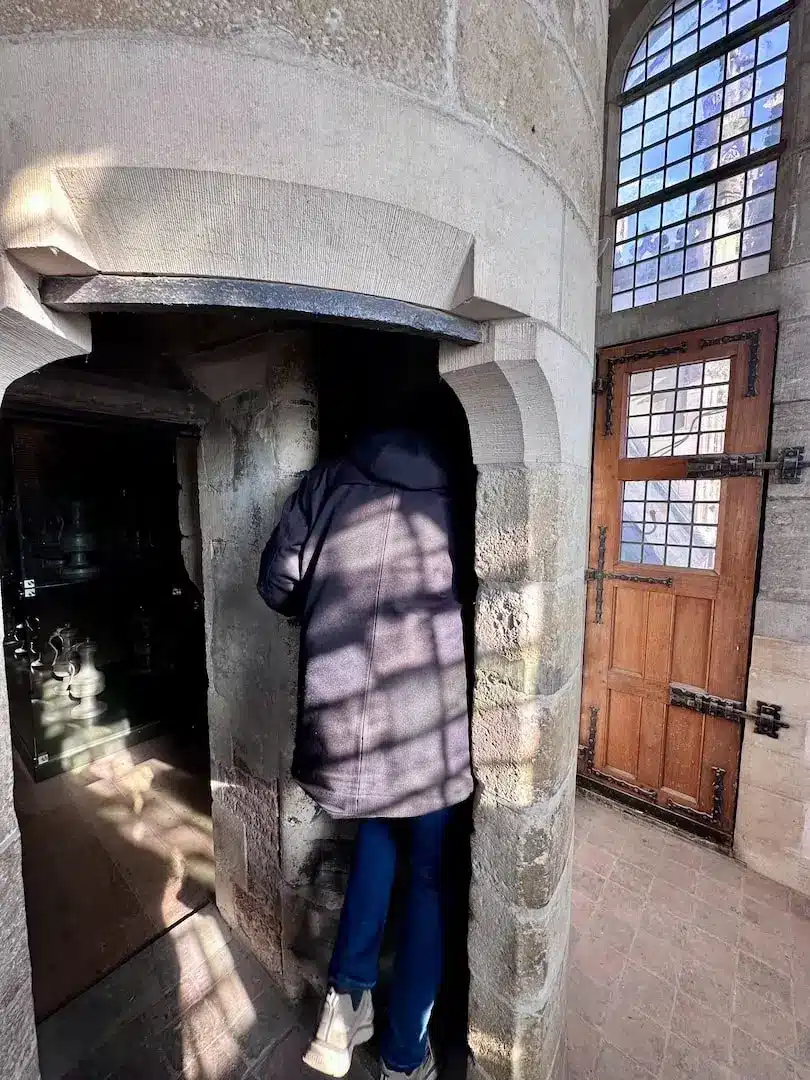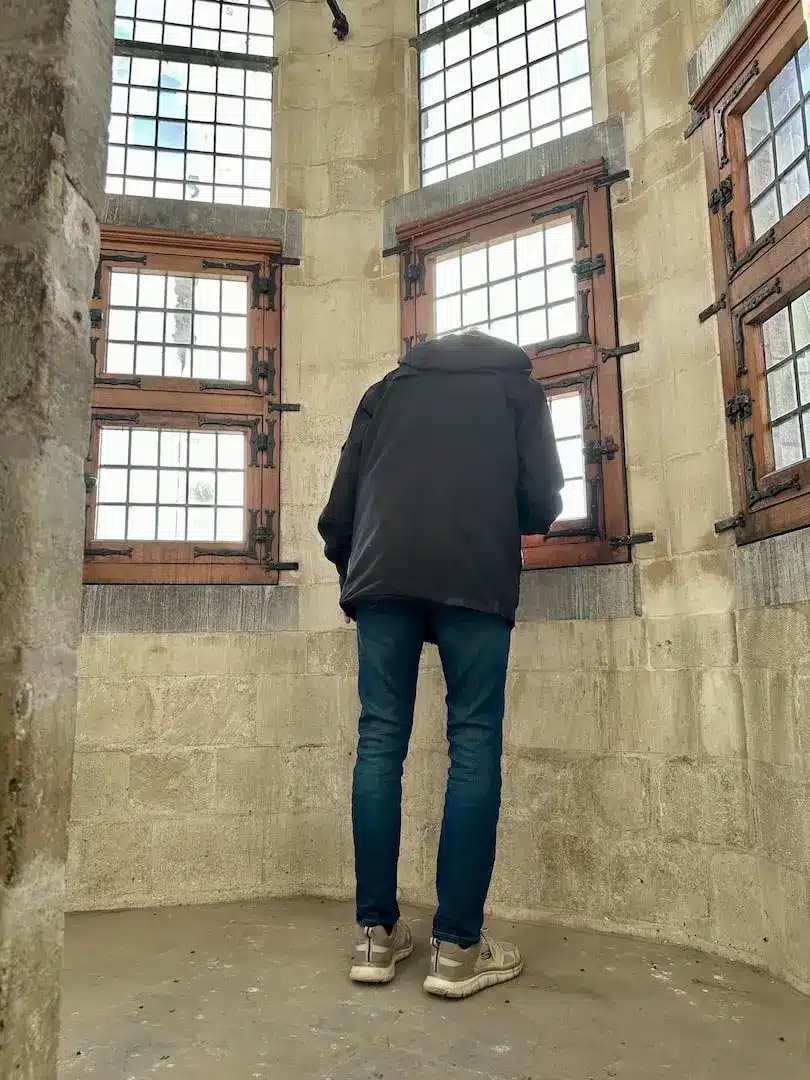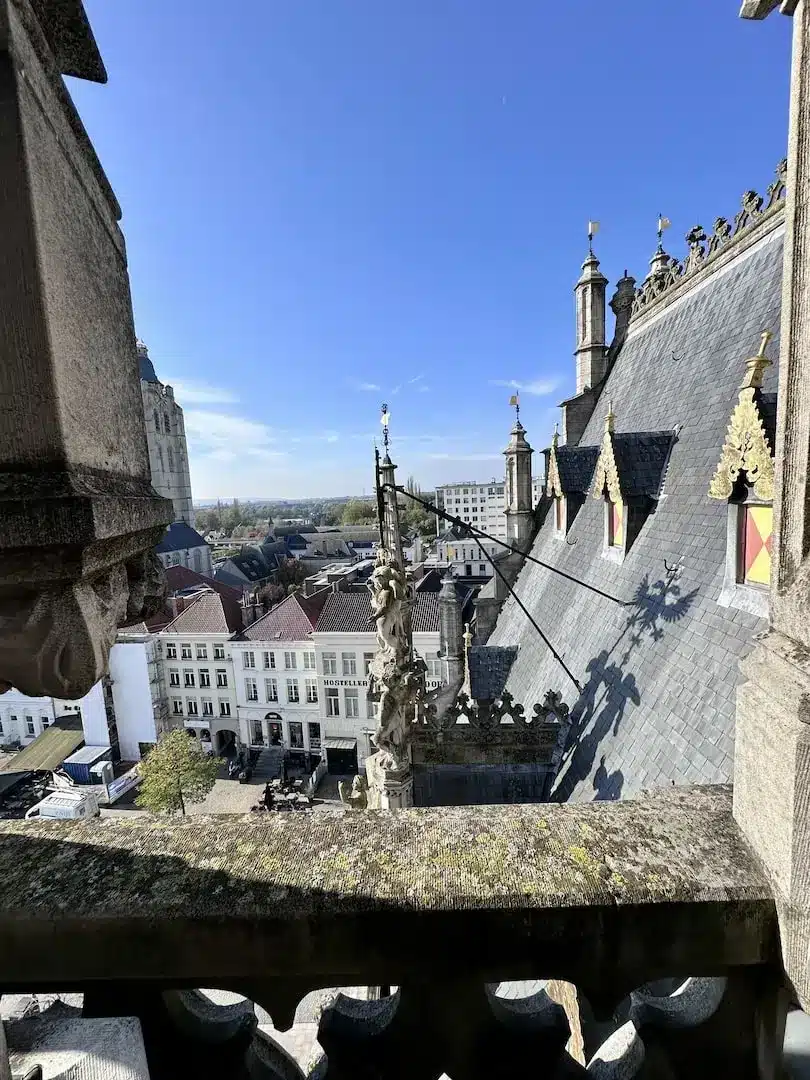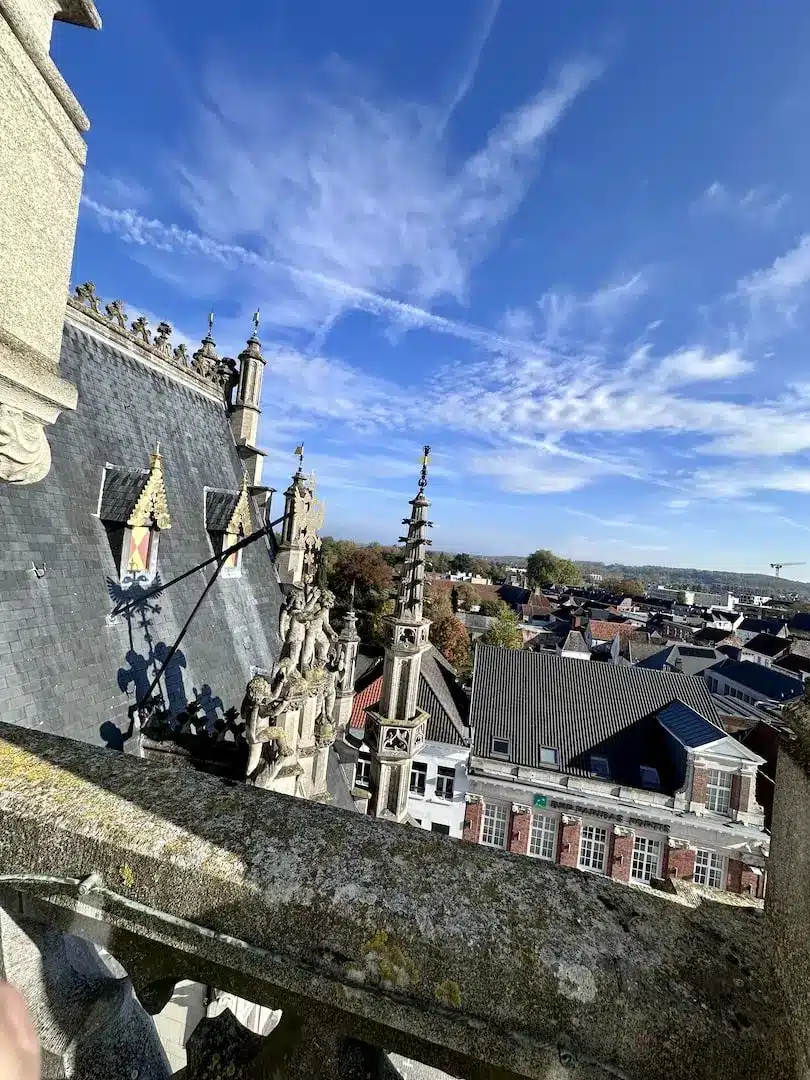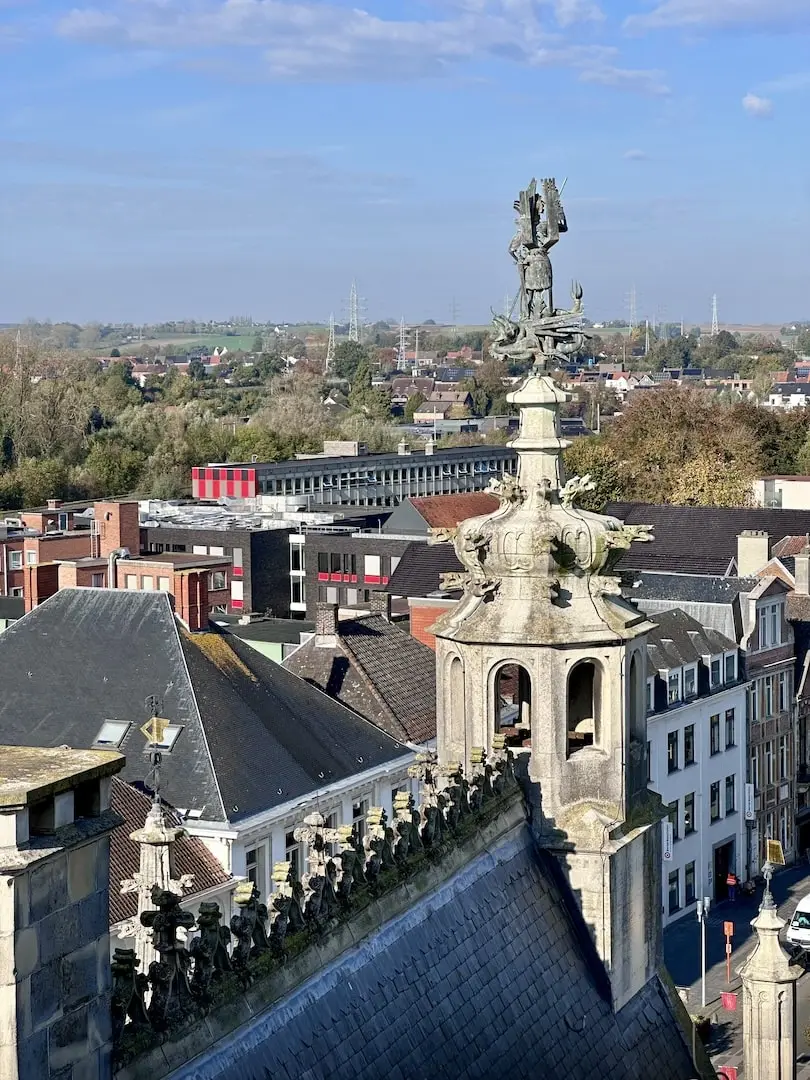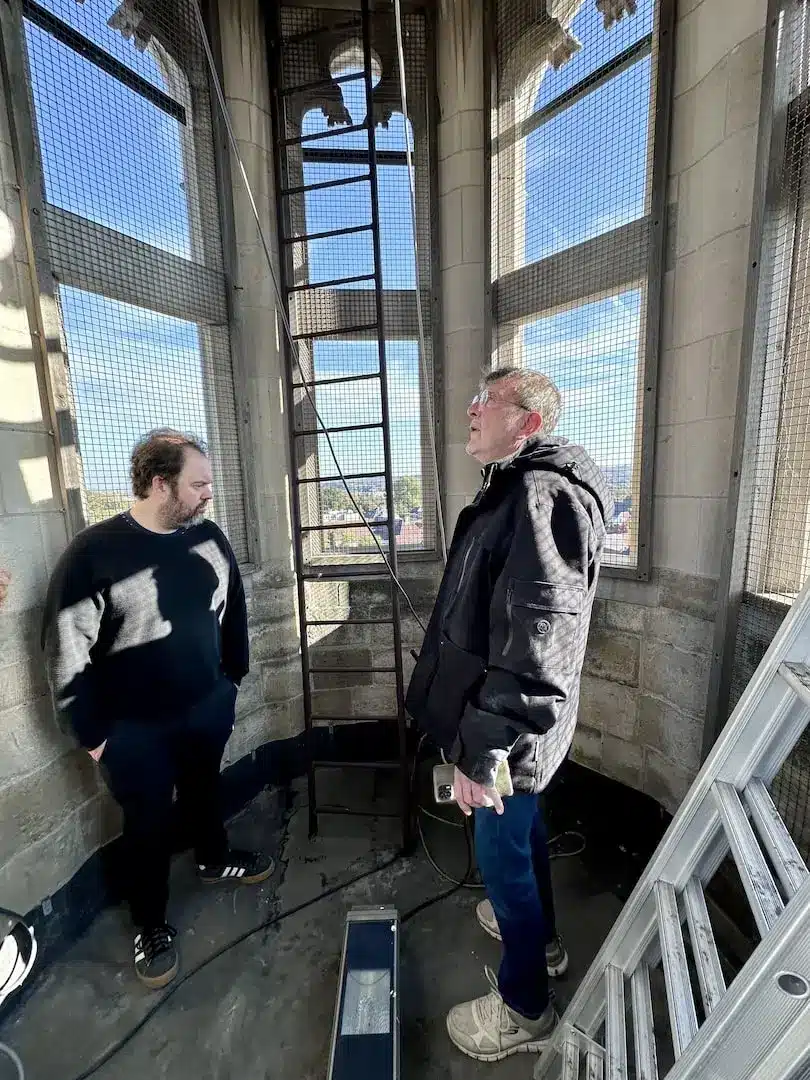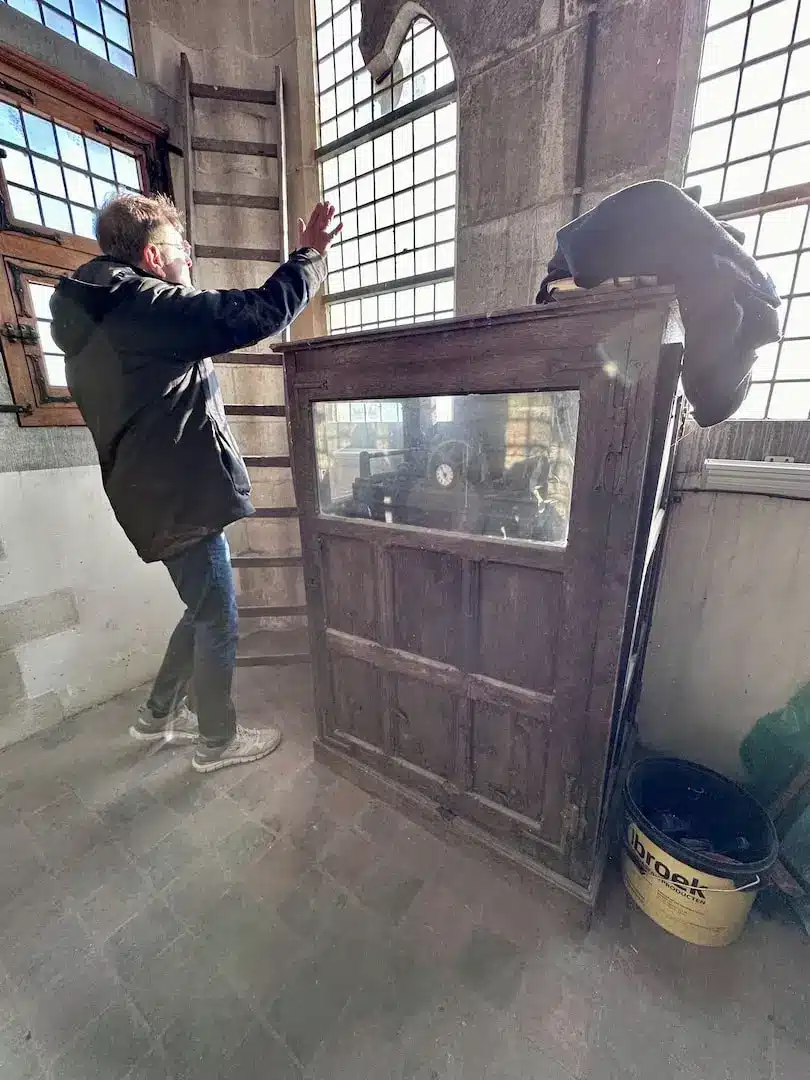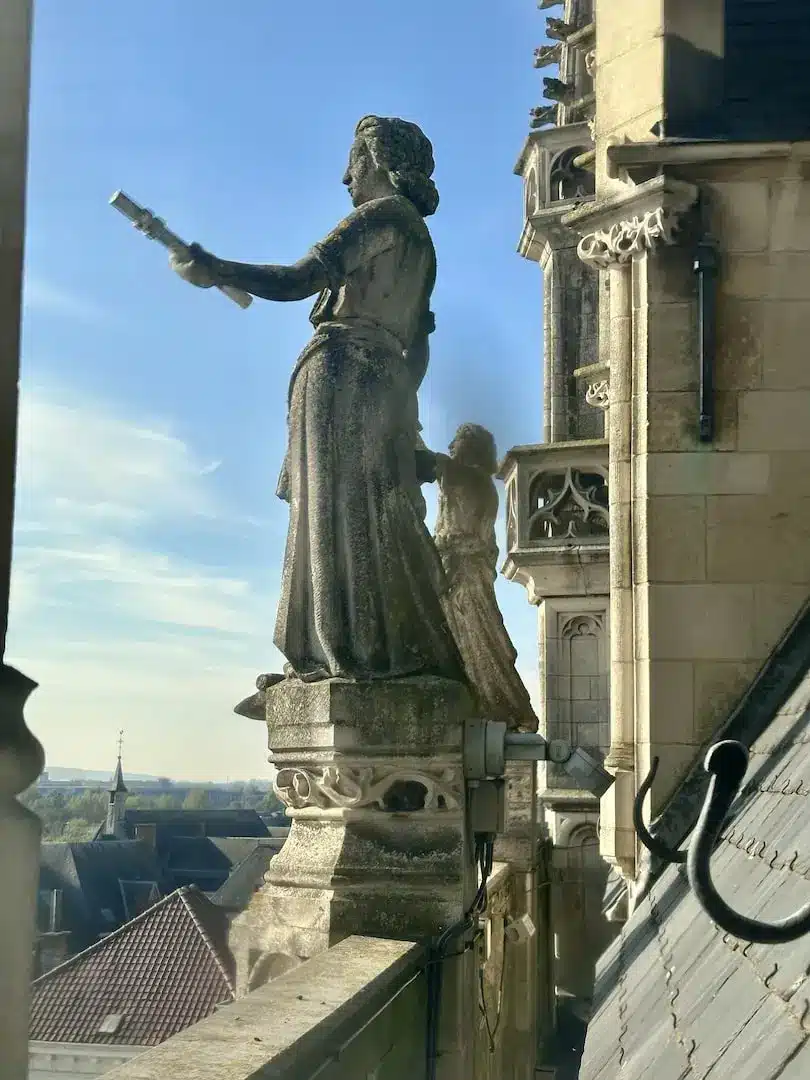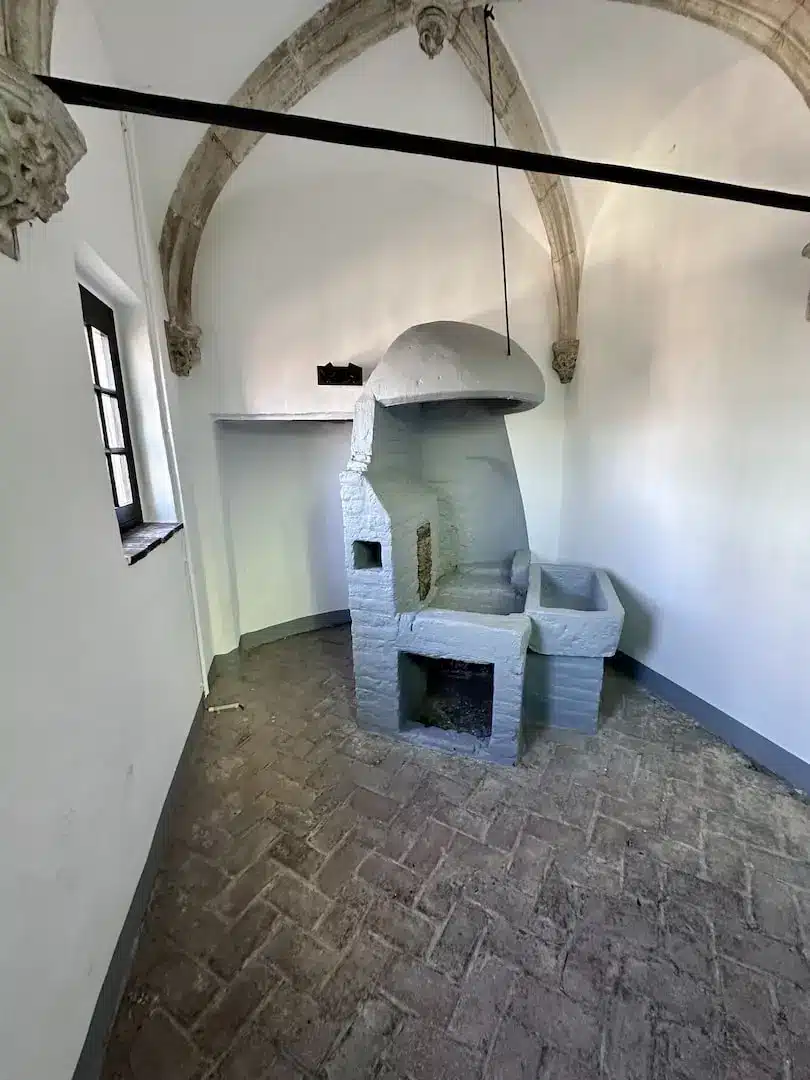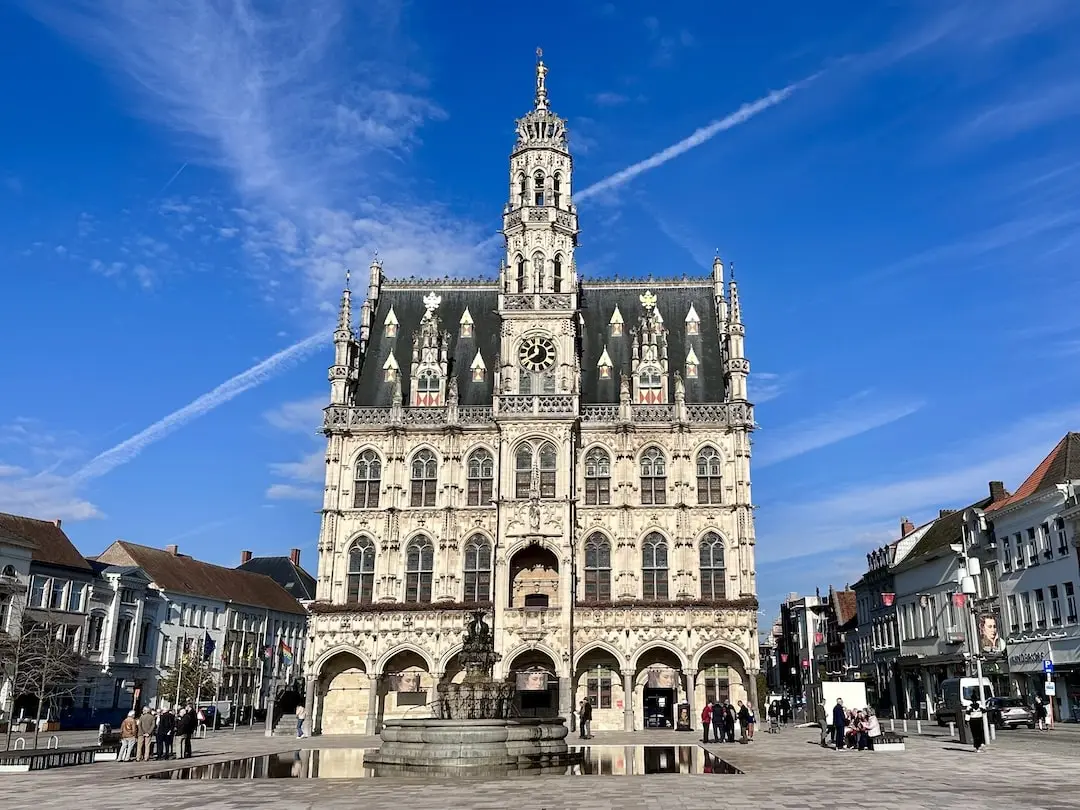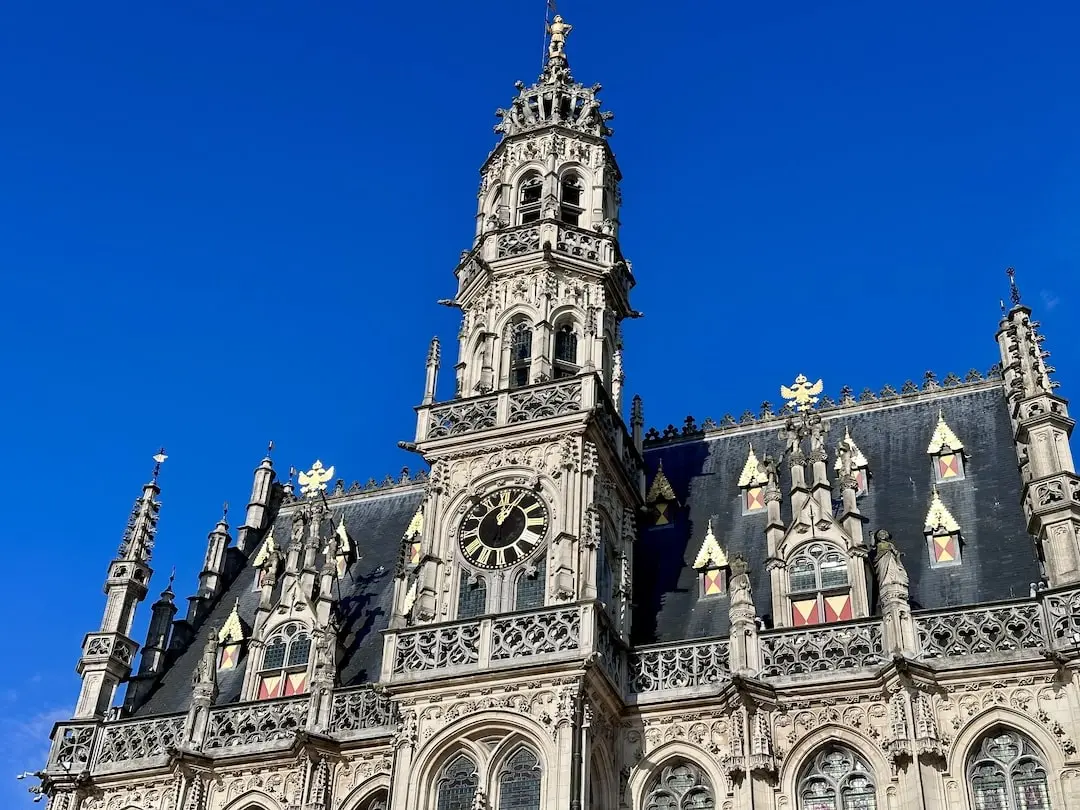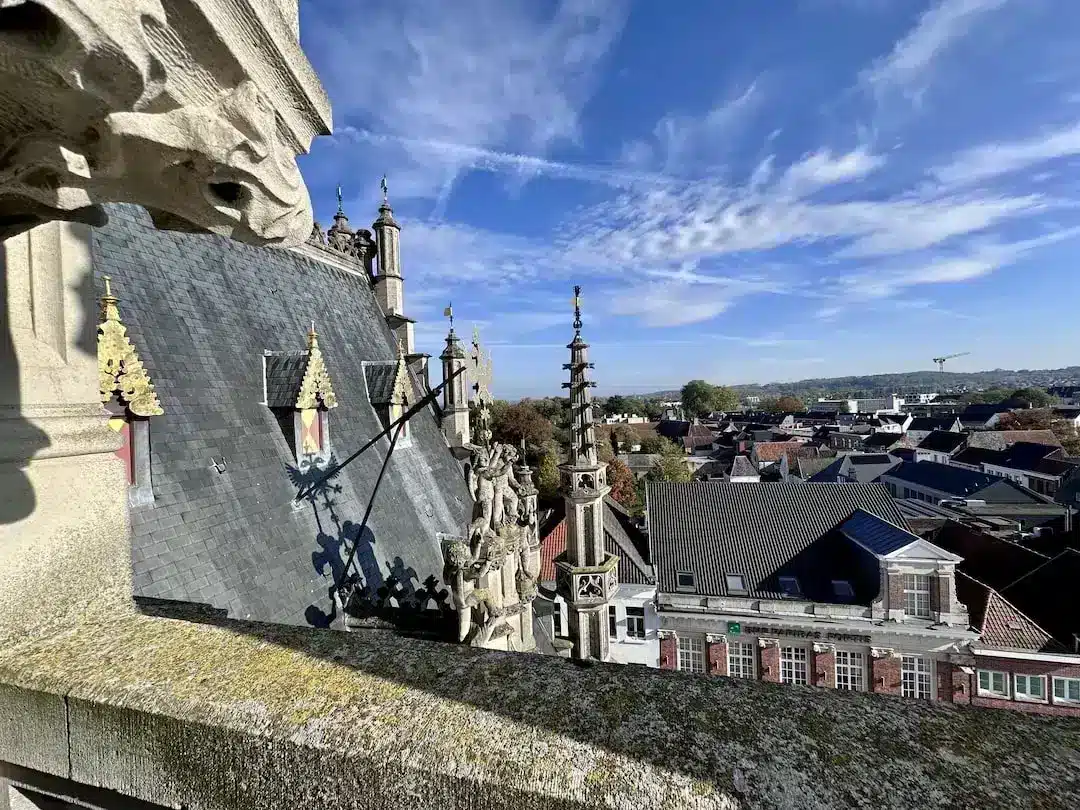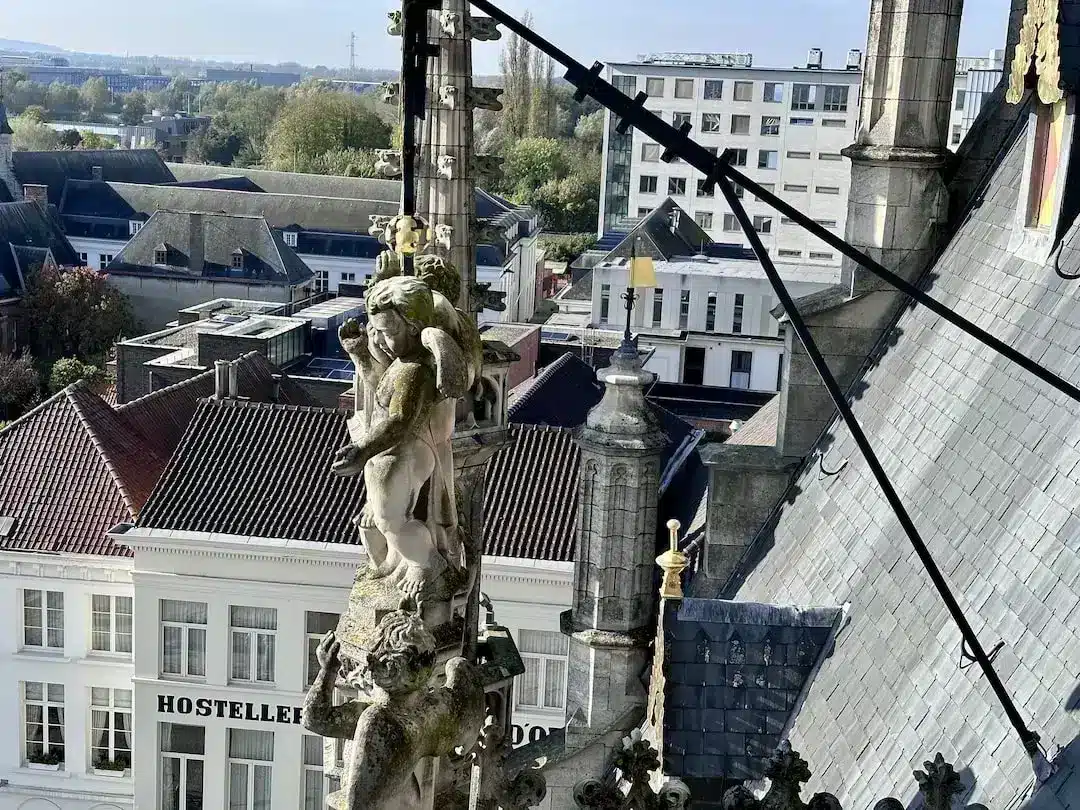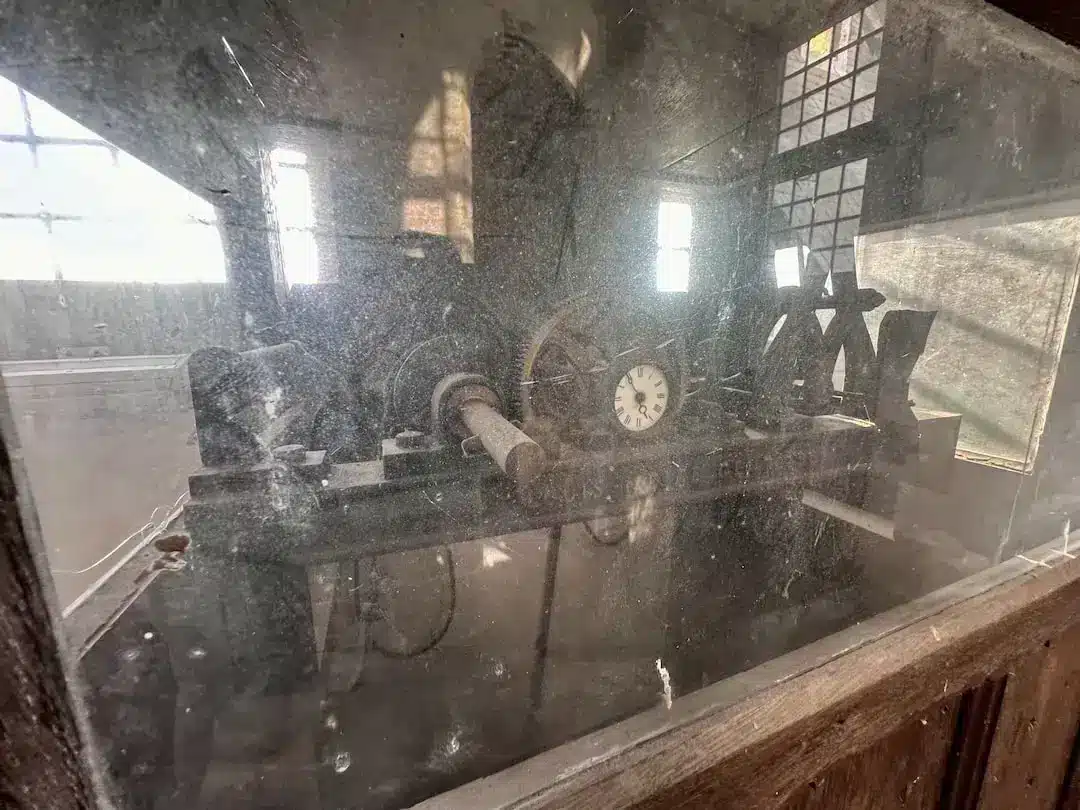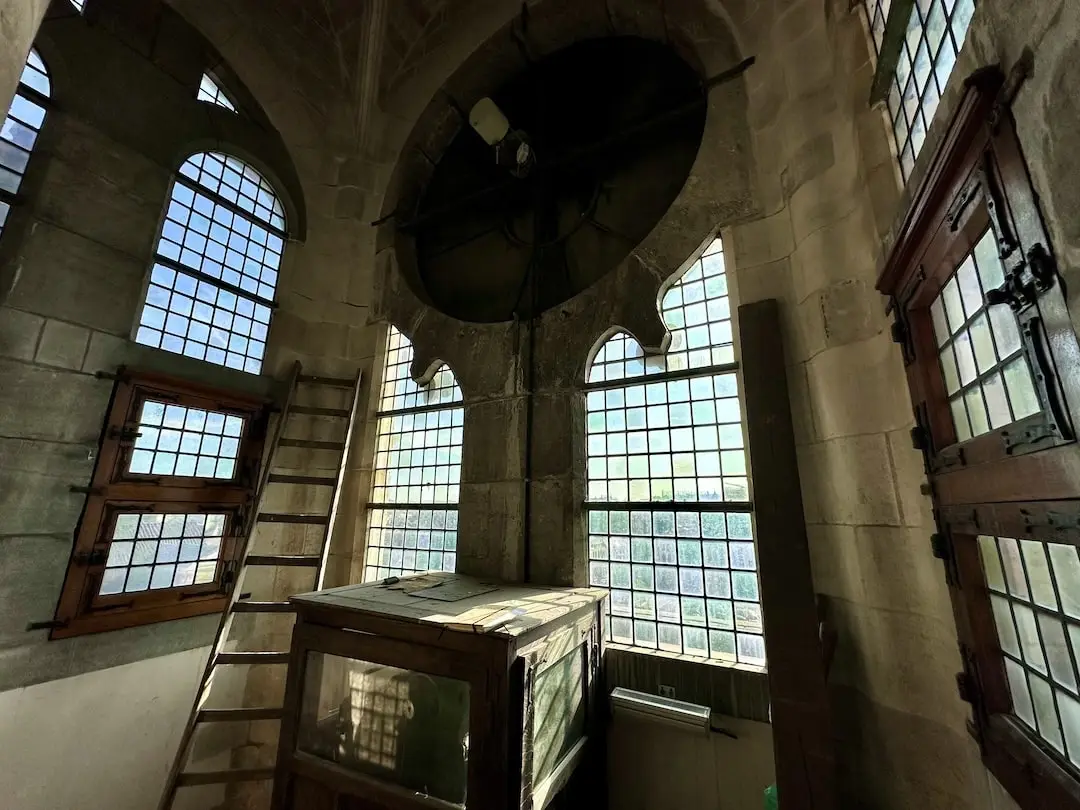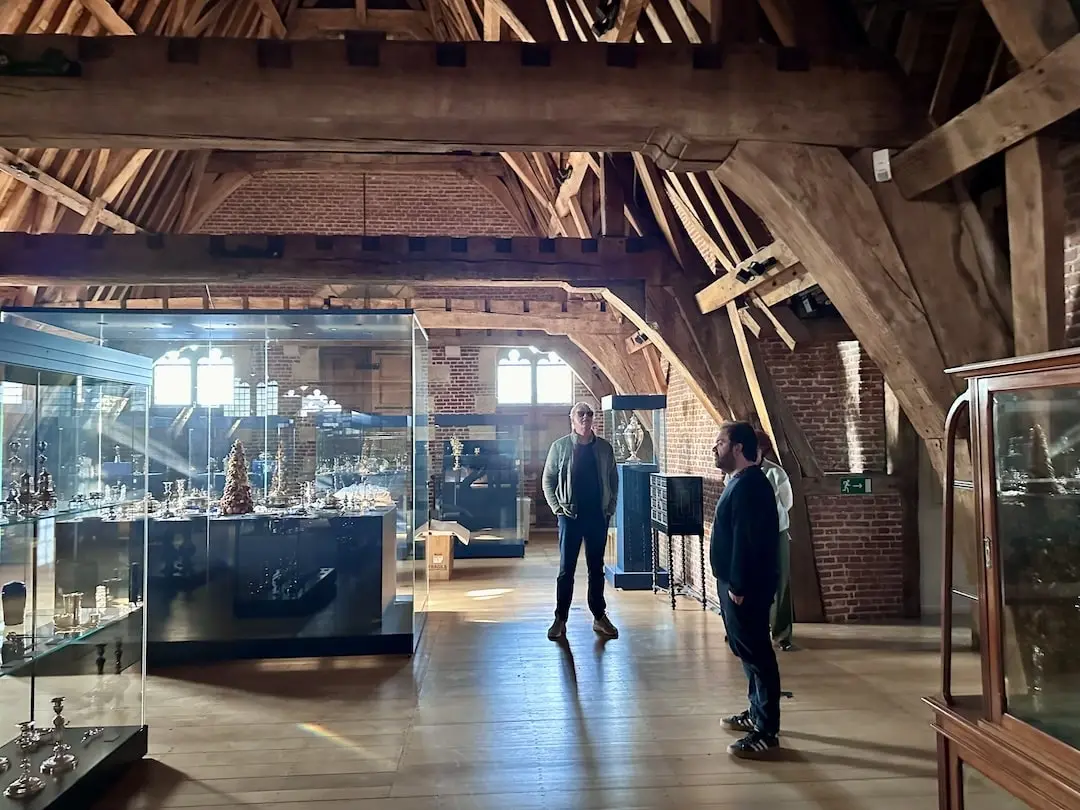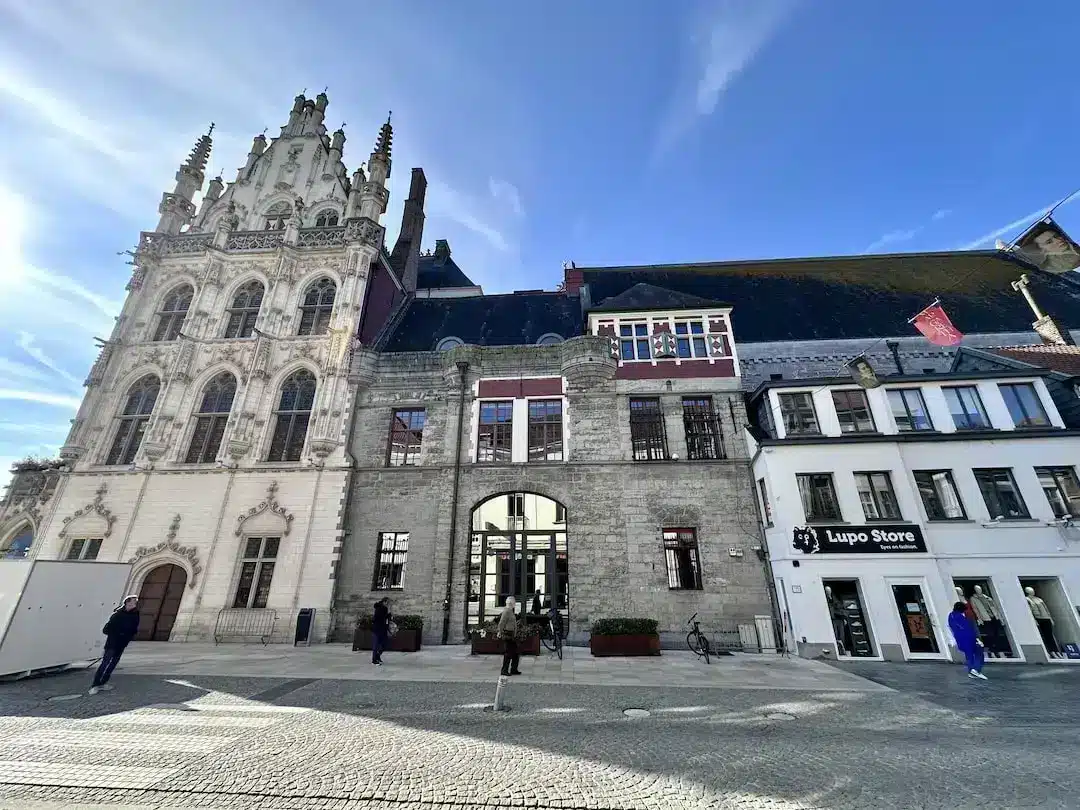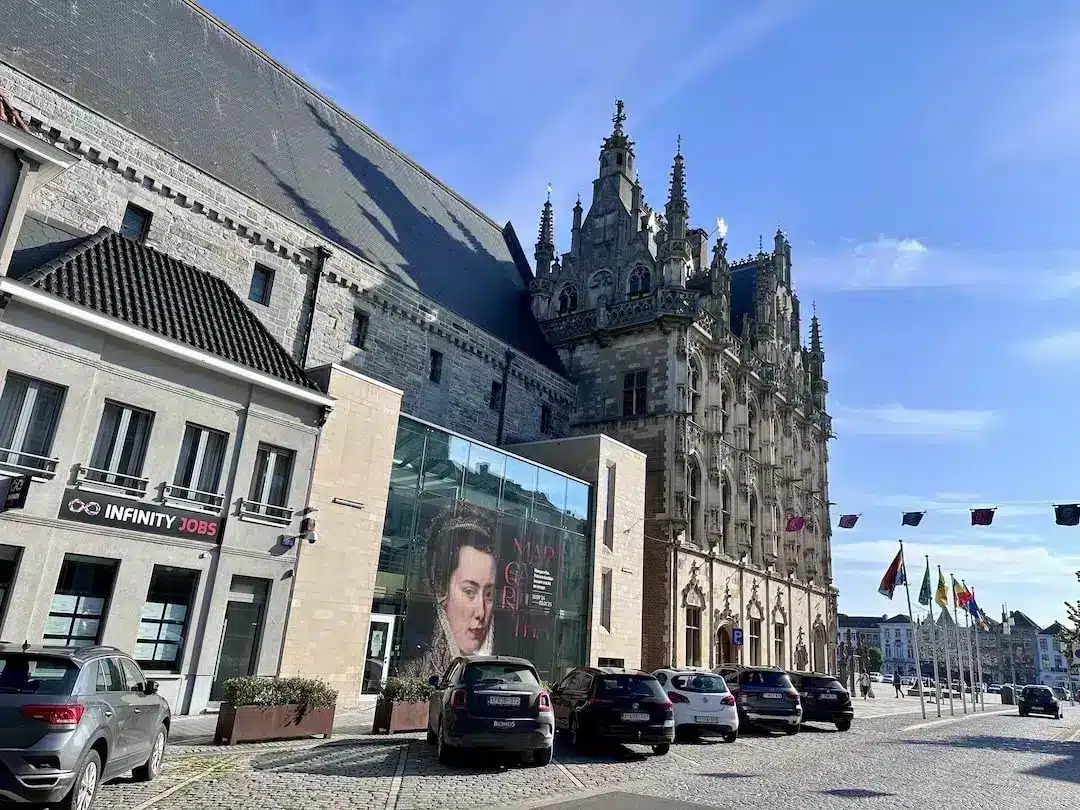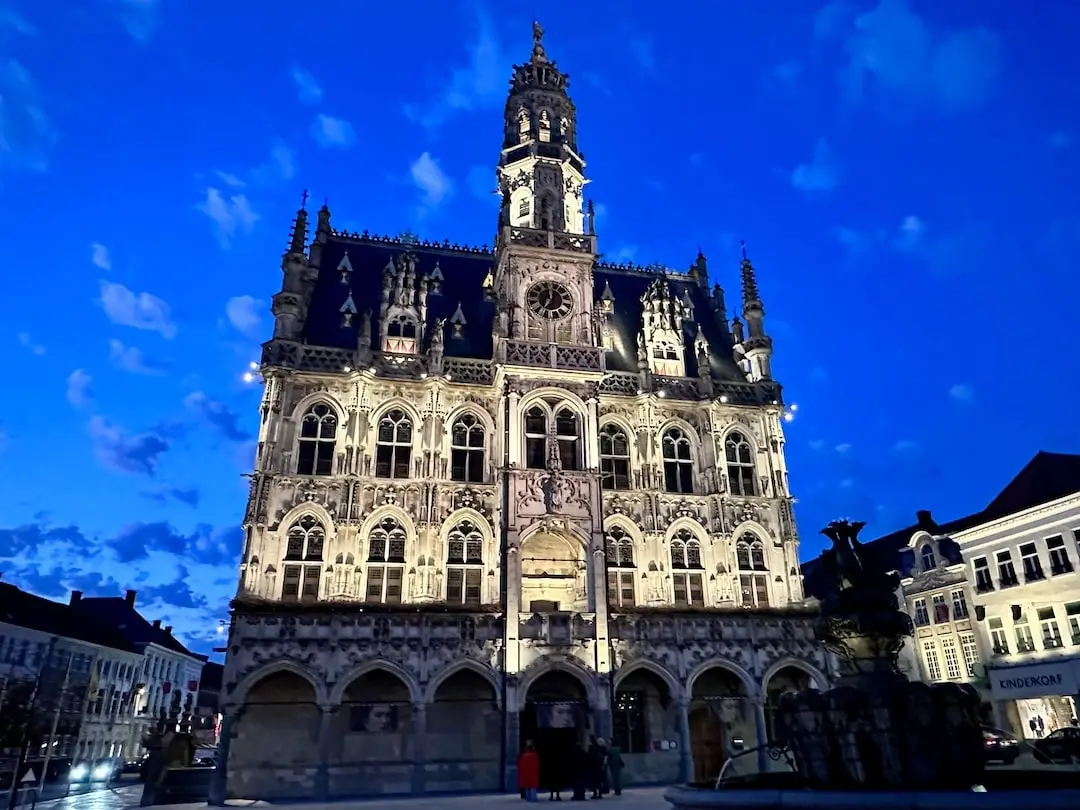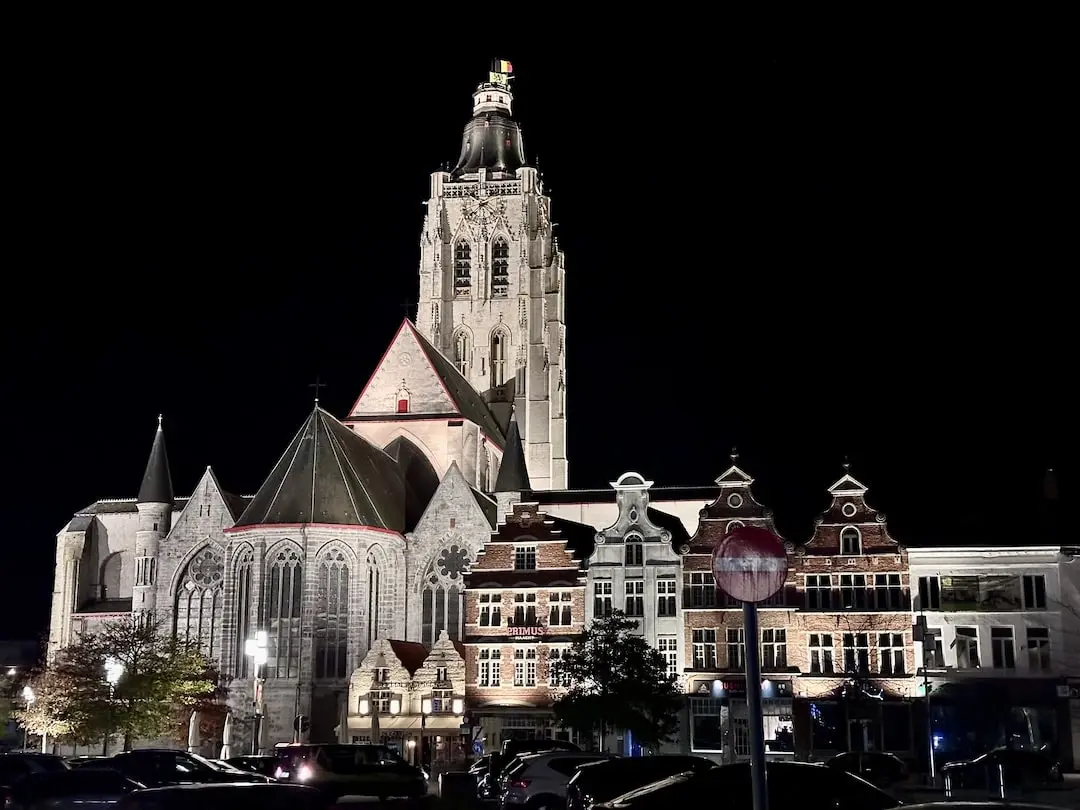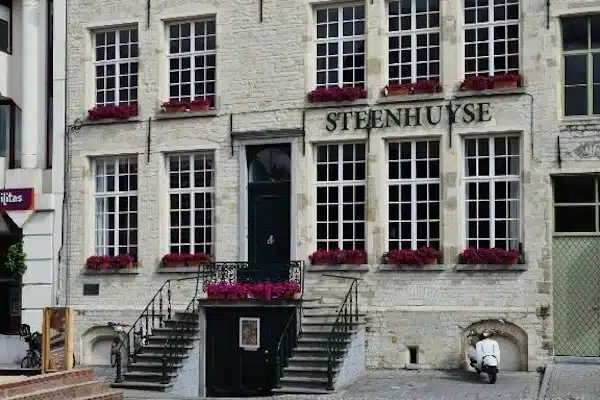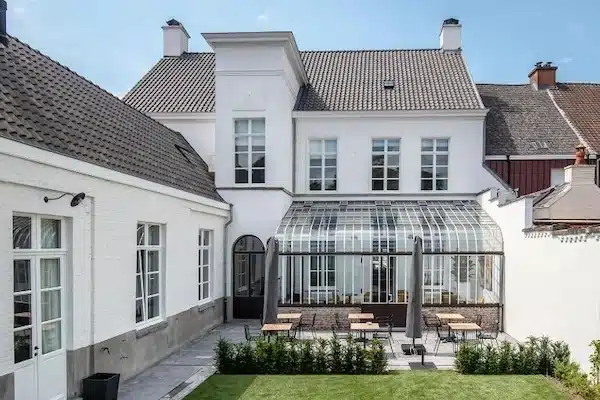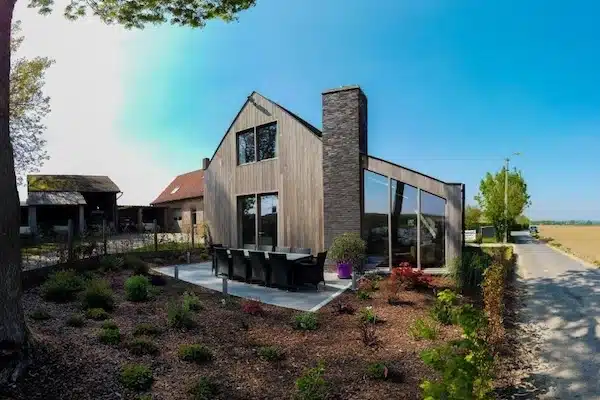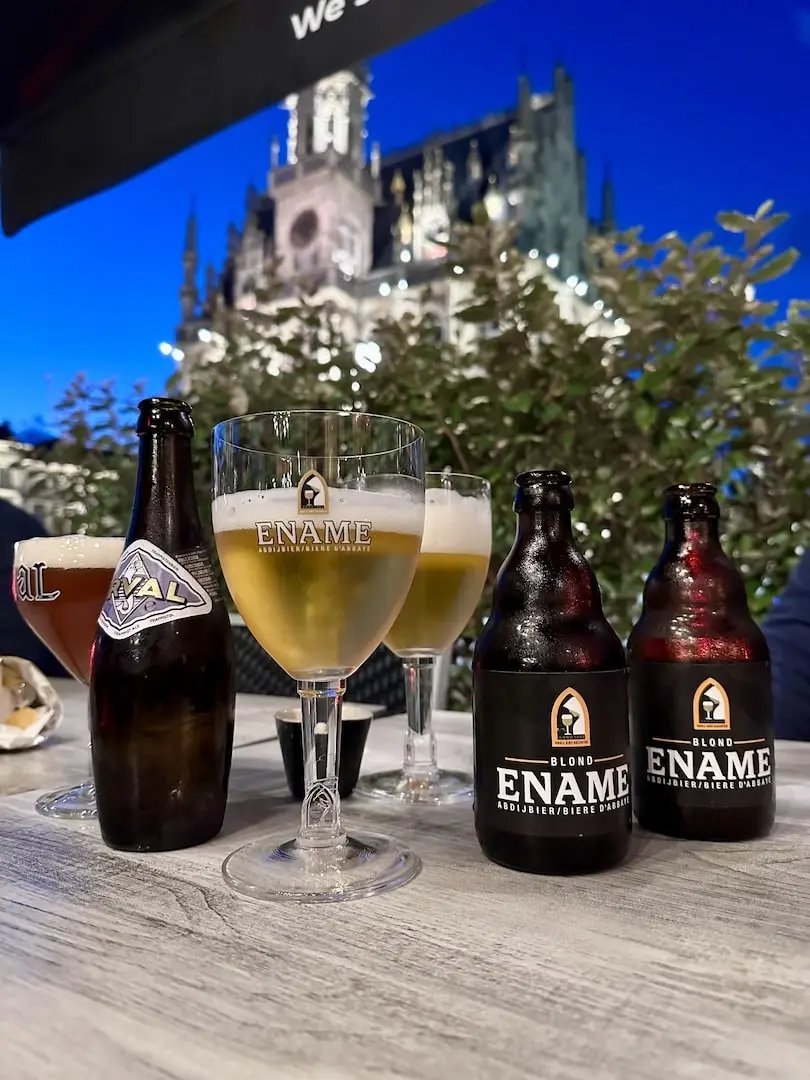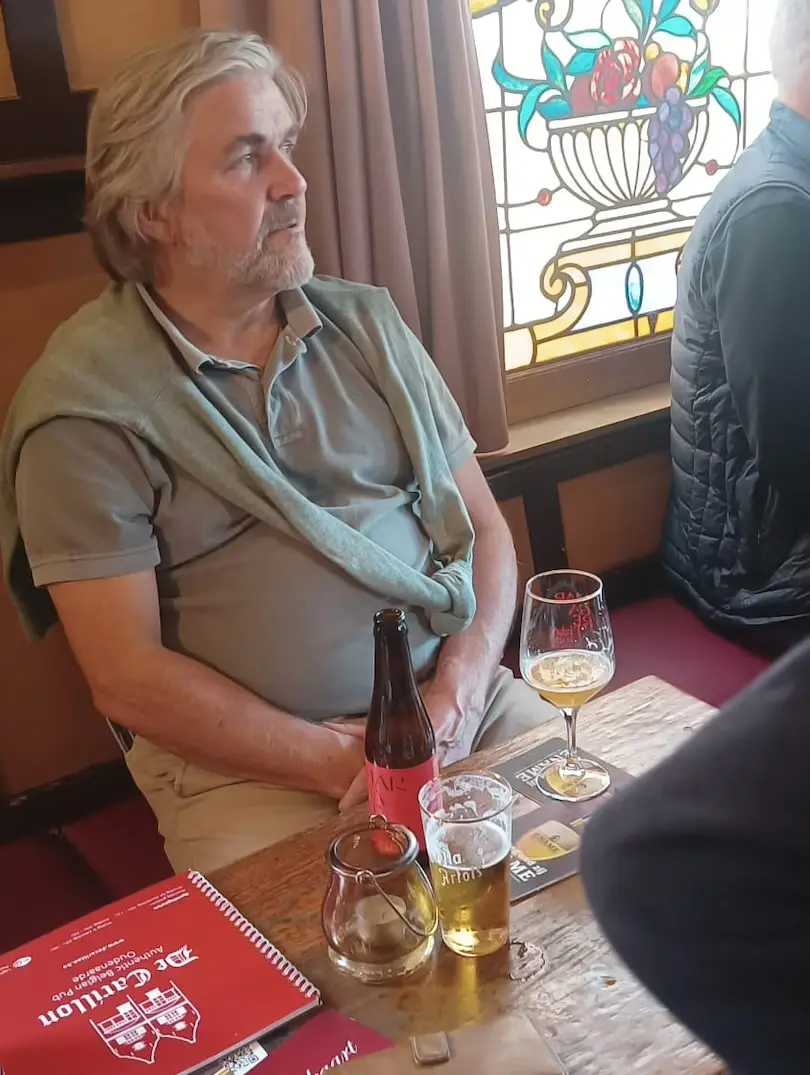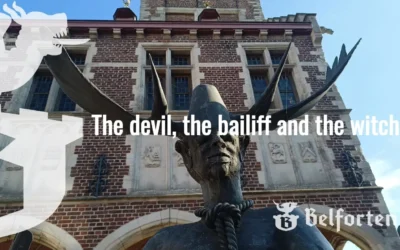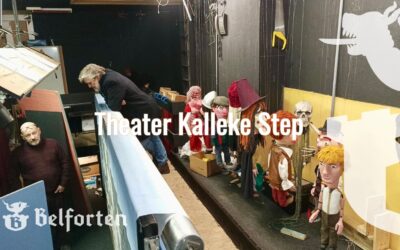Belfry of Oudenaarde
Visited in October 2024
Belfry of Oudenaarde
City guide Hilde and MOU consultant Pieter warmly awaited us at the reception desk of the Museum of Oudenaarde, located in the Town Hall and Cloth Hall. Under their expert guidance, we were given exceptional access to the belfry, where we had every opportunity to take extensive photographs.
Belfry of Oudenaarde
Concise history of the Belfry of Oudenaarde
Oudenaarde’s belfry has a rich and fascinating history, closely linked to the town hall, a pearl of Brabant late Gothic. The origin of Oudenaarde’s belfry goes back to the 14th century, when the old alderman’s house, to which the still existing cloth hall is attached, formed a central point in the city. This alderman’s house has a wooden belfry that overlooks the market and serves as a symbol of urban power and autonomy.
Construction of the new city hall
In 1525, the old alderman’s house fell into disrepair, prompting the city council to commission a new and more impressive town hall. The choice of master builder fell on Hendrik van Pede from Brussels, who began construction in 1526. His original design envisions a U-shaped building, but an L-shaped structure is eventually chosen. The foundation stone is laid on May 15, 1526 by Philip of Lalaing, municipal governor and confidant of Charles V. The construction of the new town hall, in which the belfry of Oudenaarde is integrated, is completed in 1537.
The image of Hanske the Warrior
Atop the spire of the belfry is the emperor’s crown, along with a bronze statue of Hanske the Warrior, a figure deeply rooted in local folklore. According to legend, Hanske is a city guard who must watch for the arrival of Emperor Charles V. However, when he falls asleep drunk, the emperor faces closed gates. In response, Charles V would advise the citizens of Oudenaarde to give their city guard glasses, leading to the glasses that can still be seen on the city coat of arms.
The statue of Hanske the Warrior, a Spanish standard-bearer, was made in 1530 by goldsmith W. Blanstrein to a design by Hendrik van Pede. Over the years, the statue is restored several times, including after a lightning strike in 1659. With each restoration, the statue is returned with much ceremonial display, each time adding a document in a quiver under its skirt, signed by the city council.
Restorations through the ages
City Hall underwent several restorations over the centuries. The first major restoration campaign began in 1837 and lasted until 1851. Under the direction of architect Lodewijk Roelandt, all the sculpted elements of the building are replaced. Later, between 1898 and 1902, the belfry was restored under the direction of Pieter Langerock of Ghent.
Damage to the building during World War I was repaired between 1927 and 1940 by architect Valentin Vaerwyck, with parts of the facade renewed. An extensive restoration campaign began in 1956 and proceeded in several phases, under the supervision of architects such as Valentin Vaerwyck, Roger Warie and the architectural firm Van Acker.
The carillon and clockwork
In 1556 the belfry of Oudenaarde receives a Mechelen carillon with 16 bells. This is expanded again in 1698 until the entire carillon is replaced in 1759 by one with 36 bells. This one is provided by Andreas Josephus vanden Gheyn from Leuven. In 1894 the carillon is moved to the St. Walburga tower because of doubts of the city council about the condition of the belfry tower.
The clock dial, made by Pauwel vander Schelden in collaboration with painter Nauwinc, is a striking element of the belfry. The clockwork and bells play a crucial role in the city’s daily life. They serve not only to tell the time, but also to transmit important commands, such as the opening and closing of the city gates, announcing market hours and summoning the inhabitants to meetings at the city hall.
Recent restorations
The most recent restoration campaigns, beginning in 1956 and led by different architects, ensure that the belfry retains its imposing appearance. The sculptures are replaced by replicas in a northern French stone, which is more resistant to air pollution, allowing this historic monument to stand the test of time.
Today, the belfry is an integral part of the MOU Museum Oudenaarde. Visitors can not only admire the building, but also discover the rich collection of Oudenaarde tapestries and silverware.
Recognition as a World Heritage Site
In 1999, UNESCO recognized Oudenaarde’s belfry as a world heritage site. This recognition highlights the historical and cultural value of the belfry as a symbol of urban freedom and autonomy.
The belfry remains a living monument, a witness to Oudenaarde’s ancient history, and a symbol of pride for the city and its inhabitants.
Sources:
-
-
#1 2003, Along Flemish Belfries and Townhouses, Michiel Heirman, Davidsfonds Publishers, Leuven.
-
‘#2 Singing Towers’ Andreas Dill & Luc Rombouts, Davidsfonds Leuven, 2017.
-
#3 Carillons and Towers in Belgium, Musea Nostra, Ludion Publishing House, Ghent, 1994.
-
#4 Website: onroerenderfgoed.be, accessed October 7, 2024.
-
#5 Blog:“Les Beffrois, Les Perrons & Les Rolands,” accessed October 9, 2024.
-
#6 Website:“Wikipedia Belfry of Oudenaarde,” accessed October 11, 2024.
-
Belfort
Origin: 14th century
Built: 1526-1536
Building material: (limestone) sandstone and brick
Master builder: Hendrik van Pede
Style period: Brabant late Gothic
Height: 45 meters
Accessibility: accessible daily during opening hours
UNESCO serial number: 943-019
Carillon
1407: first mention of clockwork with front strike
1504 automatic playwork
1510: first keyboard
1596: 16 new clocks and new movement
1698: expansion of number of bells
1759: replacement of 36 bells
1894: city carillon moves to St. Walburga church
Belfort opening hours
The belfry is not freely accessible.
Contact
Tourism: Call: +32 (0)55 31 72 51 Mail: mou@oudenaarde.be
Accommodation options in Oudenaarde
Part of our pre-fun consists of booking accommodation. For us, combining a visit to a belfry with an overnight stay near it completes the experience and gives us more time to gather information.
Hotel Restaurant Steenhuyse
Right in the historic heart of Oudenaarde, in a beautifully restored building, Steenhuise offers a warm, cozy atmosphere with comfortable rooms and a restaurant serving delicious, seasonal dishes. Guests can enjoy a culinary experience in a charming setting, combined with the city’s rich heritage. It is the ideal base for a stay in the region.
B&B Jesuit Square
A comfortable accommodation in the heart of the city, with easy access to local attractions and the bustling city center. Housed in a historic building, the hotel combines modern conveniences with a charming setting. Perfect for both short and longer stays, with a quiet, welcoming atmosphere for any traveler.
B&B Meulecauter
The B&B Meulecauter offers a cozy and quiet place to stay in Oudenaarde. Located just outside Oudenaarde in the Flemish Ardennes, it offers a comfortable stay with personal attention. The hospitable owners provide a pleasant atmosphere and a delicious breakfast, ideal for a relaxing visit to the city and the historic belfry.
Food and drink
During our visit to Oudenaarde, we visited a few classrooms to have something to eat, drink and, above all, taste the atmosphere. After all, not only information hunger needs to be satisfied. Do you have another absolute tip where a visit to Oudenaarde culinary should also be graced or can you tip the ultimate pub? Send us a message: info@belforten.com.
Brasserie Goldy
Brasserie Goldy in Oudenaarde offers a unique experience for those who want to admire the historic belfry from a cozy setting. This cozy brasserie, located on the Market Square, allows visitors to enjoy a magnificent view of the imposing town hall and belfry. After a visit to the Museum of Oudenaarde (MOU), it is the ideal place to chat over a regional beer or a tasty lunch. The refined dishes and relaxed atmosphere make Brasserie Goldy a perfect addition to a cultural day out in the heart of Oudenaarde.
Cafe The Carillon
Café Carillon, one of Oudenaarde’s oldest cafes, offers an authentic and cozy atmosphere that perfectly complements a visit to the historic belfry. Located on the market, near the town hall, this café exudes the charm of days gone by. Inside, you will enjoy local beers and typical Flemish hospitality. It is an ideal place to relax after your exploration of Oudenaarde’s heritage and take in the city’s unique atmosphere. A must for lovers of culture and tradition!
The three most recent posts
On this page we have collected all the relevant information for visiting this belfry. To keep this up to date, we are constantly on our way to one of the 56 belfries on the Unesco World Heritage List. Below are the latest additions.
The judge, the witch and the devil
Three special stories from the history of Tielt are symbolized and immortalized by three statues of Jef Claerhout.
Up in the belfry of Tielt!
Extensive message about the tour of the belfry of Tielt accompanied by a city guide and the subsequent ‘climb’.
Theater Kalleke Step
Notice of an unexpected visit to theater Kalleke Step in Grembergen during a planned visit to Dendermonde.
